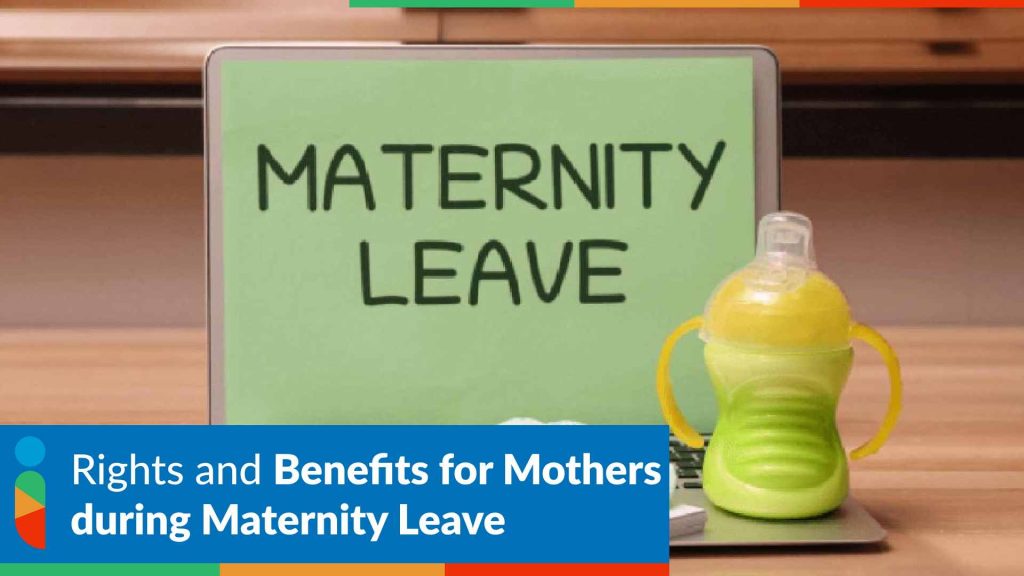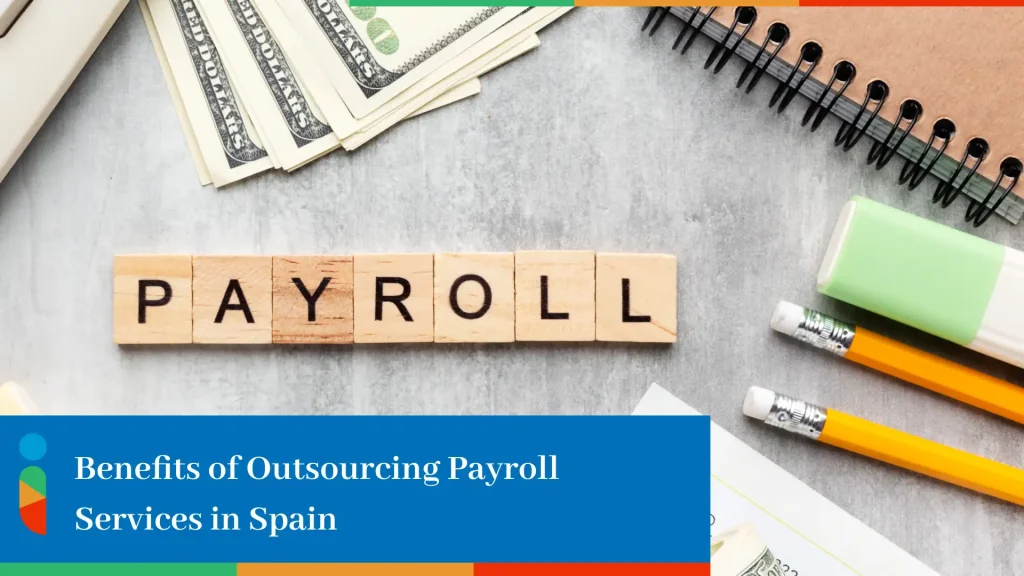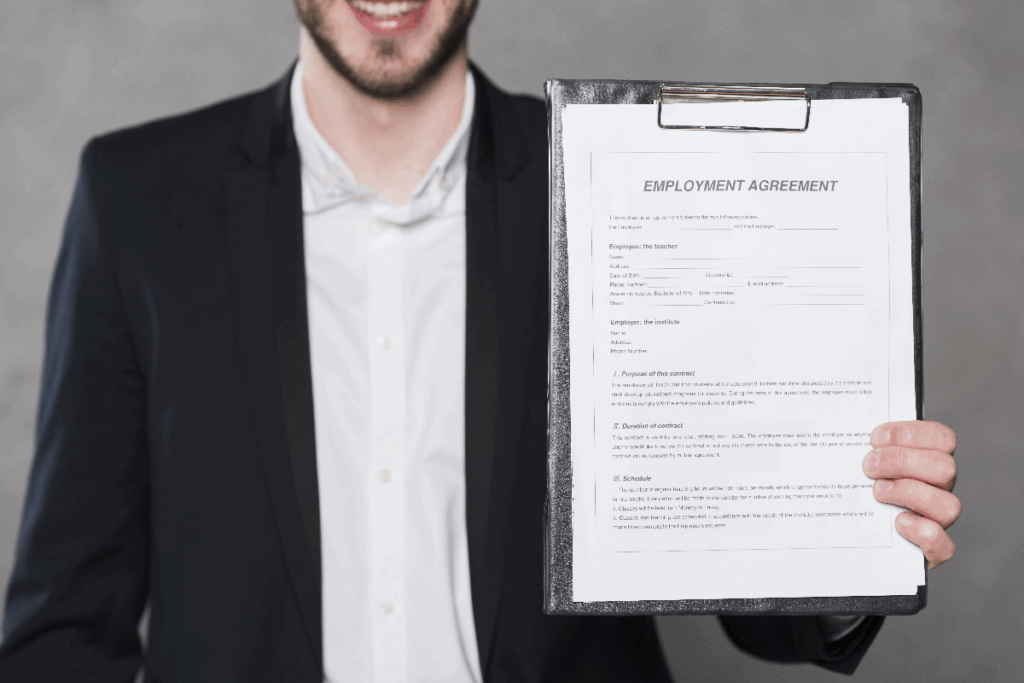The Spanish government makes great efforts to protect all working mothers who already have children or who are about to have them. So, if you want to be a mother shortly, it is important that you investigate maternity leave in Spain. Maternity and lactation leave is considered one of the benefits with the most imports in Spain. This is a right that all mothers should have access to and some laws protect these women from anyone who wants to take it away from them.
In this article, we are going to teach you all the information you need to know about maternity leave law in Spain. Maternity and lactation leave is a public assistance benefit that is financial in nature and has a fixed duration. In other words, a working woman who is about to become a mother has secure compensation for the income she loses when she stops attending the work environment due to the birth of a child. This is a permit that encompasses different aspects that you will see in detail below.
Paid Maternity Leave Duration and Compensation
In interim contracts, which are those that will be held during maternity leave, they may last a maximum of 4 months. However, maternity leave in Spain duration may be extended in certain circumstances. Throughout this period, the person in charge of paying the salary will be the National Social Security Institute. To do this, certain specifications must be followed.
In addition, you can count on the possibility of further extending maternity leave. This can be done by what is called unpaid leave of absence. Thanks to this procedure you will be able to take care of your child for 3 years. This, without the need to return to your job. However, you will have the disadvantage of not buying anything. With this process, the company must keep your position for one year and in the next 2 years offer you a similar one if you decide to return.
If you want to know how much you will earn during the 4 months of maternity leave, you should search the payroll of the company you work for. In a more specific way, you must look for the payroll that corresponds to the month before the maternity leave. At the bottom of this document, you will see a box that says contribution base for common contingencies.
This observed amount will be the amount that you will collect during the entire period that you are on leave. Also, if you earn more than usual during the weeks off, it is because your salary is prorated. This means that, for example, extra payments are included. For this reason, it is important to know everything about labor law in Spain to know everything related to these issues.
Receiving Maternity Leave Payments: Process and Timing
According to the maternity leave rights, this leave must be processed as follows:
Term. This can be requested from the day after the maternity leave period begins. It is extremely important to bear in mind that the right to request the benefit prescribes after 5 years.
Agency. The application must be submitted to the National Institute of Social Security or INSS. This entity is the one in charge of processing and who will pay the benefit.
Documentation. You only have to present the application model, duly complying with the DNI, NIE, or passport, and the family book. In addition, you will have to present additional documentation in adoption cases, if you assign part of the rest period to the father; or at the beginning of the rest before childbirth.
The term of resolution. There will be a maximum of 30 days, which will be counted from the moment the request is submitted.
When will the benefit be collected: The usual way in which the INSS works is to make the payment on the last business day of each month. In this way, the benefit should be received in the following days.
If you are a remote employee, you will need to be aware of how Spain employment law applies to remote employees. On the other hand, it is important to know the permission that exists called sick leave before childbirth and that will be explained below:
Sick leave before delivery. Depending on the company and the job you have, this leave may vary in duration. It can be days, weeks, or even months before the birth is given. This will depend on the risk of the pregnancy and will be in charge of covering cases where the mother suffers health effects due to her pregnancy.
Protection Against Termination or Discrimination
Every working woman in Spain should know what labor law says in the country. Especially, mothers who are about to have children should know about maternity leave in Spain. There are different rights that a pregnant woman has; which must be respected by all employers. These were created so that future mothers can meet their needs during the gestation period.
In particular, there are four rights that expectant mothers have access to. It is important to mention that in case these are not respected, some entities and laws protect women. Next, you will see the rights they have access to.
Cannot be dismissed: if there is no just cause, pregnant women cannot be dismissed. If this event occurs, the dismissal will be considered null and void. In addition, this can have severe consequences for the company. For instance, the employer must reinstate the employee and pay her moral compensation. It is important to note that the employee’s contract must not be canceled before the corresponding date, due to pregnancy.
Breastfeeding leave: working women in the process of pregnancy are entitled to leave for breastfeeding. This begins once the paid maternity leave is completed. The lactation leave consists of an hour of rest during the working day; which will end when the baby reaches 9 months.
They must be attended to for any labor inconvenience: the maternity leave in Spain establishes that women have the right to other permits during the last months of pregnancy. For instance, the leave for risks during pregnancy; in case the working conditions endanger the health of the baby. In addition, if the mother suffers from complications resulting from the pregnancy itself, she can opt for sick leave. It is important to highlight; companies must provide a work environment without risk for pregnant women.
Legal Foundations of Maternity Leave Protection
Everything related to maternity leave in Spain is governed by the legal regime of benefits. This also applies to risk leave during pregnancy. Both permits are regulated by Royal Decree 295/2009 and the General Social Security Law. It is important to mention that this leave was created to promote equality between women and men. In addition, it allows you to have a balance between work and family life.
In the General Law of Social Security; Specifically, article 178 talks about the legal basis of maternity leave in Spain. This article establishes the two requirements that workers (both father and mother) must meet in order to opt for this leave. These obligations are as follows.
The first is that both the father and the mother must be affiliated and registered. That is, having a situation assimilated in some type of regime established by the Social Security system.
The second is to demonstrate the minimum contribution periods required depending on the case in question. For instance, if the pregnancy is high-risk, pertinent evidence must be presented to verify the seriousness of the matter.
In addition, it establishes that maternity leave in Spain has a duration of 4 months or 16 weeks. However, depending on the case, this can be extended. For example, fetal disability, large family, or multiple births.
Another legal basis for maternity leave is Royal Decree 295/2009 of March 6. Which is in charge of regulating the economic benefits of the Social Security system for paternity, maternity, risk during lactation, and pregnancy. In this decree, you will find the conditions and requirements to have access to these benefits. Also, set the duration and quantity.
It should be noted that Royal Decree 295/2009 also establishes that equal opportunities and treatment between men and women in the workplace must be guaranteed.
Prohibitions on Discrimination During and After Maternity Leave
The law in Spain prohibits and punishes discrimination based on sex or gender; especially, to fathers and mothers who enjoy paid maternity leave. And not only that, but also concerning matters related to maternity, marital status, and the assumption of family obligations. There is the right to equal treatment between men and women; that is to say, it does not tolerate any type of discrimination, indirect or direct, for reasons of sex.
Both mothers and fathers are protected against discrimination on the grounds of maternity. This includes everything related to the work environment. That is access to employment, good conditions in the current work environment, and promotion to a better job position.
It is important to mention that the Constitutional Court made some statements that establish the violation of the right against discrimination for reasons of gender. Specifically, when access to employment is denied to a woman with children under the age of 13 or due to pregnancy.
Likewise, the law establishes the right of women to request a period of adaptation to employment, the form of provision of the same, and the distribution of working time. In addition, it is established that, in case of dismissal due to pregnancy or maternity, the company will be exposed to severe consequences.
On the other hand, you should know that single mothers are entitled to 32 weeks of maternity leave for the birth of a child. This is because they accumulate the 16 weeks (4 months) corresponding to the paternity leave that they did not decide not to enjoy.
Guarding Against Prejudice in Promotion and Advancement
If a pregnant woman suffers prejudice in the environment that prevents her from applying for a promotion and advancement, she can take certain measures that support her case. The actions you can take are described below.
Inform the company of the situation of the pregnancy. This is to request the pertinent adaptations to the new job, guaranteeing a safe work environment.
Request adaptation to the new job. Including the explanation of the duration of the working day and the necessary modality. You can request the provision of employment remotely if possible.
File a complaint before the Labor Inspectorate or the courts. If the previous measures do not give results or that the mother is suffering some type of harassment in the workplace; You must go to the relevant entities to make the complaint.
Request the economic and social benefits corresponding to maternity leave in Spain. Future parents must apply for maternity or paternity leave. Especially if there are risks during pregnancy or lactation.
Addressing Discrimination Complaints and Concerns
Any pregnant woman who suffers some type of discrimination due to her state of pregnancy. Either in the labor or social field, can present their complaints to the following entities.
Women’s institutes: their main function is to receive and take action in the administrative order of the complaints received.
The Labor and Social Security Inspectorate: is the entity in charge of ensuring compliance with labor laws. It has the authority to penalize companies that commit any offense in the form of discriminatory conduct.
Courts of justice: this entity has the function of resolving legal conflicts between both parties. In addition, it makes sure that people’s rights are fulfilled. For instance, the right to equality of gender.
Protection from Negative Performance Assessments
Future parents have the right to protection against negative performance evaluations motivated by maternity or paternity. This includes the gestation period, childbirth, and lactation. In case you are the victim of an unwarranted negative performance review, you can file a complaint or complaint with any of the entities mentioned above.
If you want more information on this topic and others like it, get in touch with us and we will gladly give you support and advice in Spain.






